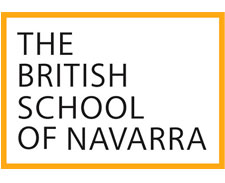STUDIES
Early years
2-5 years
The British equivalent of the Early Years is called the Early Years Foundation Stage (EYFS). This stage comprises Pre-Nursery (for 2-year-olds), Nursery (3-year-olds) and Reception (4-year-olds).
At The British School of Navarra we provide a curriculum that encourages learning through play and real life experiences. We seek the integral development of children so that they learn to communicate, to collaborate and to think critically. During these years the foundations of learning are built, pupils get used to school routines, improve their concentration and social skills. Art and music are used in games and activities to enhance creativity and let pupils learn by exploring. In addition, the school day is conducted entirely in English, with native English-speaking teachers and two teachers per classroom, enabling us to help each child develop to their full potential.
British experience
In our Early Years classes, students have all their sessions in English. We follow the British curriculum, giving our children the same education any pupil receives in the UK. Our native English-speaking teachers and teacher assistants provide pupils with a true British education without leaving their hometown.
Personalized attention
Our classes are small, which allows one-on-one attention when neccesary. Teachers and teaching assistants are trained to observe and reflect on the children’s independent learning. Planned activities are carried out by adults for the whole class or small groups.
Real-life learning
At The British School of Navarra we encourage learning experiences with links to real life. Educational trips and realistic role-play areas embed rich learning experiences for the children and allow them to make connections between the classroom and real life scenarios.
Learning is fun
Our teaching plan is based on the understanding that young children learn best through play and a play-based curriculum. Throughout the day, planned opportunities for play are available to the children and they are given access to a wide range of materials to support their learning through exploration and interaction. Planned inputs are delivered daily through games, songs and rhymes, collaborative learning and circle times. The circle time serves as the starting point of an activity, the focus of a lesson or the sharing of experiences.
